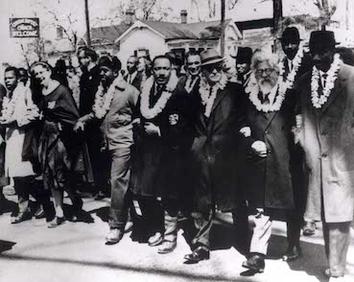Two thirds of Americans think it's okay to question US-Israeli ties - online poll
Some two-thirds of Americans believe it is acceptable to question the US-Israel relationship, a new Washington Post poll has found. The poll was conducted online by Prof. Shibley Telhami of the University of Maryland, among 2,395 participants.8 American monuments celebrating anti-Semites
According to the poll, 43% of the participants believe that “it is acceptable for a member of the US Congress to question the US-Israel relationship,” (42% of Republicans, 46% of Democrats, and 39% of independents). An additional 24% said that “it is the duty” of a member of the House to question the relationship between the two countries.
Notably, Republican and Democrat voters were split on whether it is the duty of Congress to defend the relationship between the US and Israel or to question it. A third (32%) of Republican participants said that a House member must defend the support for Israel. In comparison, only 9% of Democrat voters agreed.
On the contrary, 35% of those who identify as Democrats said it is a duty of Congress people to question the relationship between the countries, with only 11% of Republican voters agreeing with the statement.
Participants were asked how important of an issue the Israeli-Palestinian conflict is for the US interests. Almost half (47%), said it is among the top five issues, while more than a third (35%) said it is not among the top five. Only 17% thought that the conflict is at least among the top three, or is even the most significant issue for the US interests.
In the weeks since protests against racism began after the killing of George Floyd, activists around the world have been toppling statues, either by pressuring public officials or by tearing the monuments down themselves.Douglas Murray: What isn’t being said about the Reading attack victims?
Activists have naturally focused on memorials to Confederate leaders or others who enacted racist policies, and associate monuments to anti-Semites with Europe, where they are common. The United States has its own such memorials.
Mary Elizabeth Lease
Lease, born in 1850, was an 19th century Populist and a leader of the women’s suffrage movement. She campaigned in favor of women’s and farmers’ rights, as well as the prohibition of alcohol. One scholar has claimed that Lease, who was based in Kansas for much of her fame, was the inspiration for the character of Dorothy in “The Wizard of Oz,” written by L. Frank Baum. But her crusade against bankers, who she felt were oppressing farmers, often veered into anti-Semitic conspiracy theories. People who were forced to take out bank loans were “paying tribute to the Rothschilds of England, who are but the agent of the Jews,” she claimed.
A statue of Lease was erected in Wichita, Kansas in 2012 by the Hypatia Club, the state’s oldest women’s club, which Lease founded. “She was an incredible role model when she couldn’t even vote,” a club member told the Wichita Eagle.
Thomas E. Watson
Watson was a Georgia [Democrat] congressman and newspaper publisher who served as a vice-presidential nominee for William Jennings Bryan’s Populist Party in 1896. During the 1913 trial of Leo Frank, a Jewish man falsely accused of murdering a 13-year-old Christian girl, Watson’s paper whipped up anti-Semitic sentiment. After Frank was convicted and his sentence was commuted, Watson advocated for Frank to be lynched, which he eventually was. Watson was elected to the Senate in 1922 but died in office a year later. In addition to his anti-Semitism, Watson was also a white supremacist and anti-Catholic.
The statue of Watson on the steps of the Georgia state capitol was long controversial. Then-Gov. Nathan Deal removed the statue in 2013, but claimed that his move was only for renovation purposes. The statue is now located in a park across the street from the building.
Imagine if on Saturday evening a white neo-Nazi had stabbed three men to death. Imagine, furthermore, if in the wake of the killings it had turned out that all three of the victims were gay. Or ‘members of the LGBT community’, to use the lexicon of the time. And then imagine if two days later nobody in the UK or anywhere else was very interested in any of this. So what if the victims were all gay? Why bother sifting around for motives. What are you trying to say? Bigot.
Well something that might well be analogous to that happened in Reading on Saturday evening and over the days since.
On Saturday evening, Khairi Saadallah went on a stabbing spree in Forbury Gardens, Reading. His victims were three gay men, James Furlong, David Wails and Joe Ritchie-Bennett. It has since emerged that the 25-year old suspect, who is now in police custody, came to the UK from Libya in 2012. He is reported to have come to the attention of MI5 last year as an individual who had the potential to travel overseas for terrorism purposes. The Security Service apparently decided that he was not an immediate risk.
The families of Furlong, Wails and Ritchie-Bennett might beg to differ on that last point. But who knows. So far there has been almost no interest expressed in the possible motives of the attacker. Quite possibly there is a mental health component. In which case I would expect that to be looked into. Quite possibly there will be some drugs-related component. In which case I would expect the usual voices to demand an investigation into that. But anything else to see here? Any other reason why a migrant from Libya who was given asylum in the UK might want to go around stabbing gay men? Well who would even ask such questions? What do you want to find? Bigot.



































